Golden Generation Art Workshop: Character Development for a Brighter Future
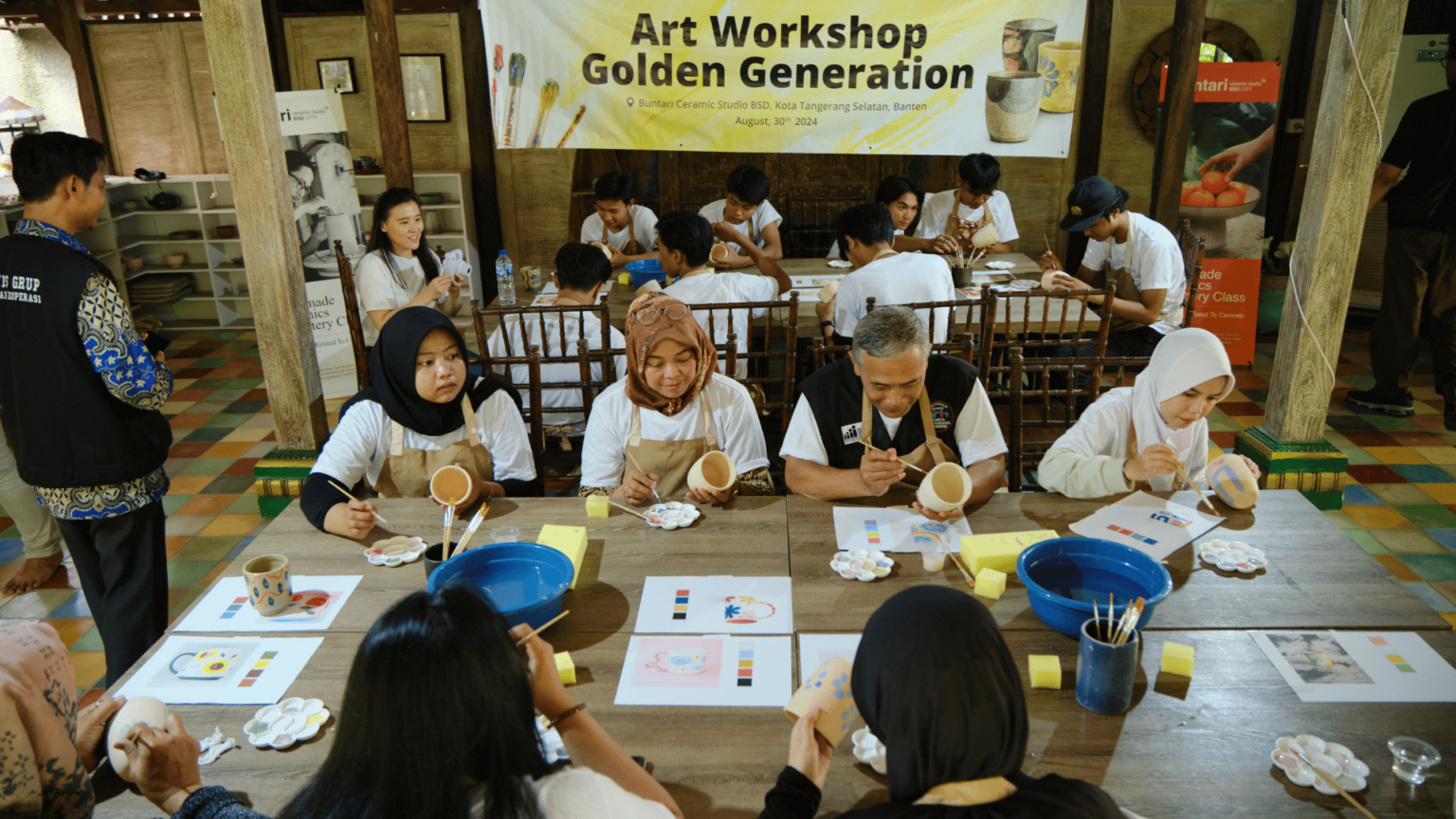
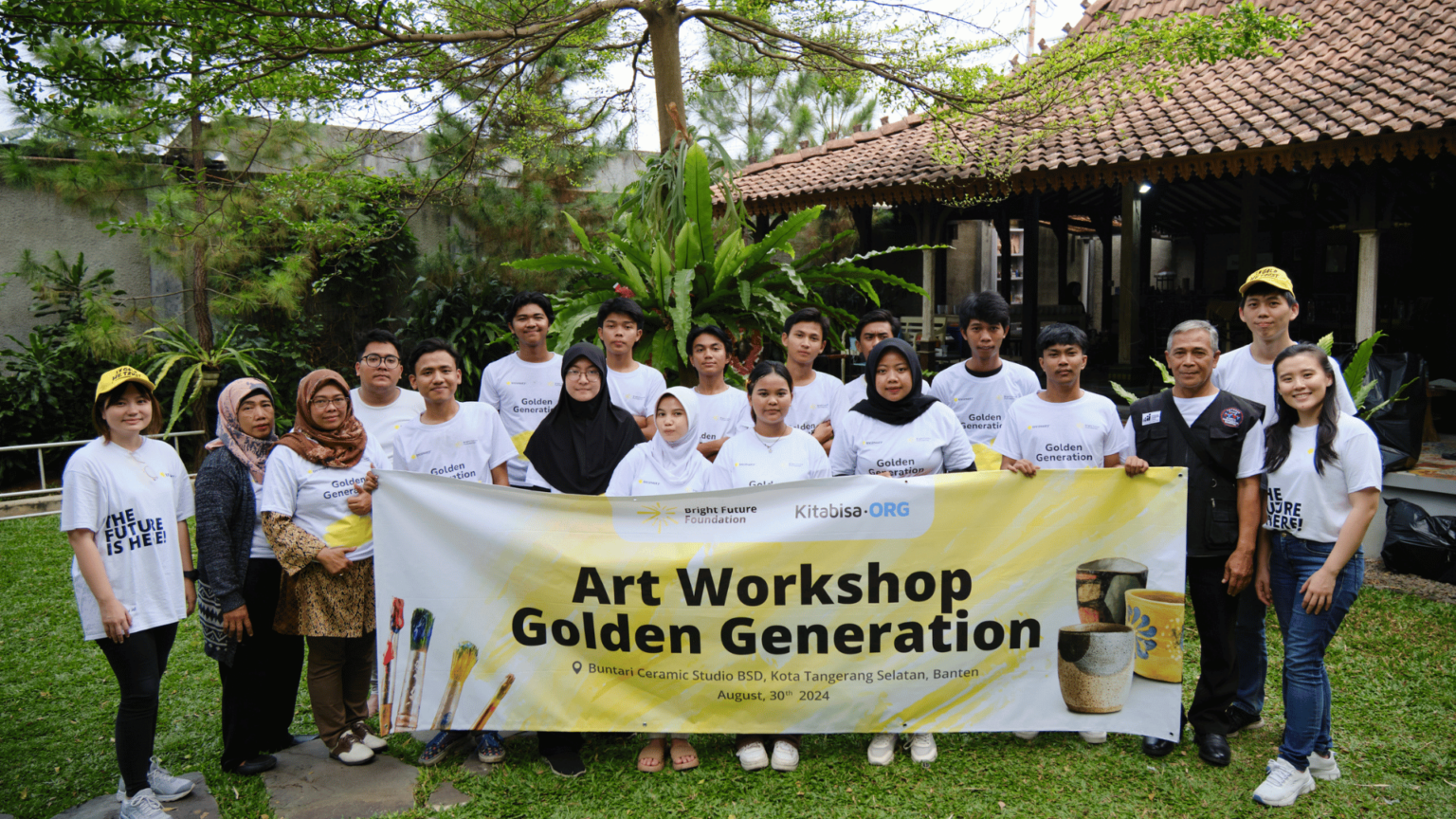
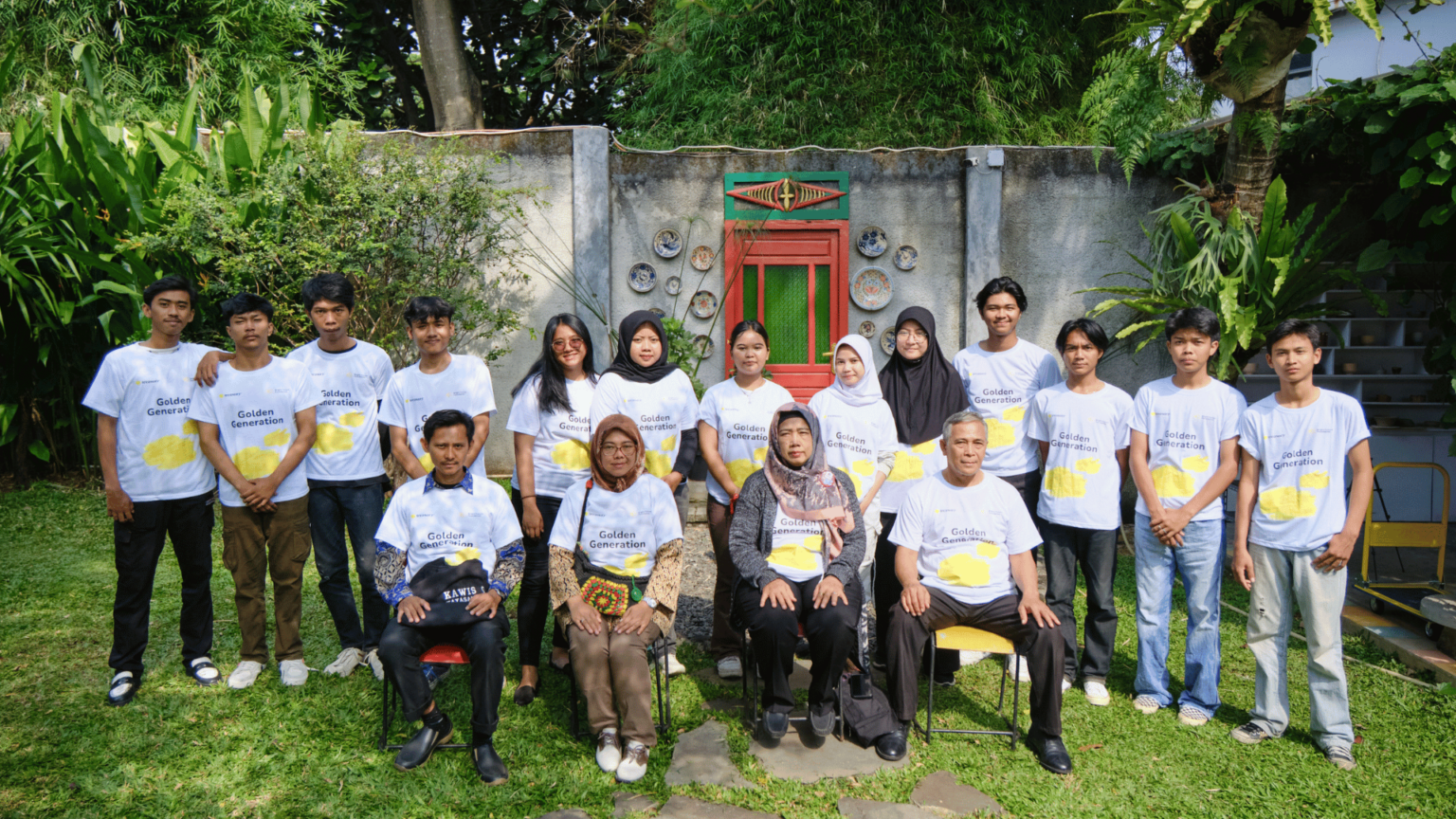
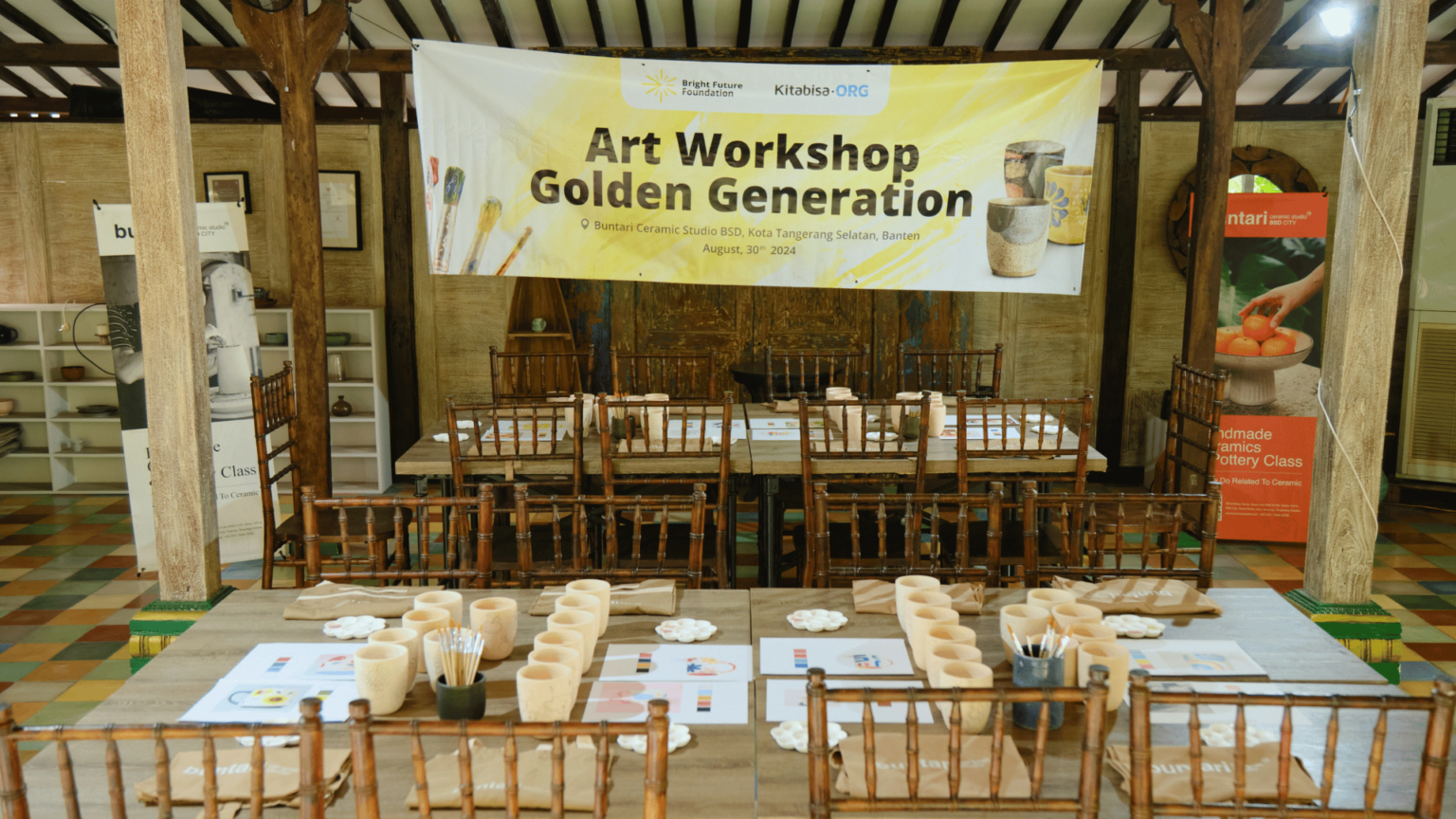


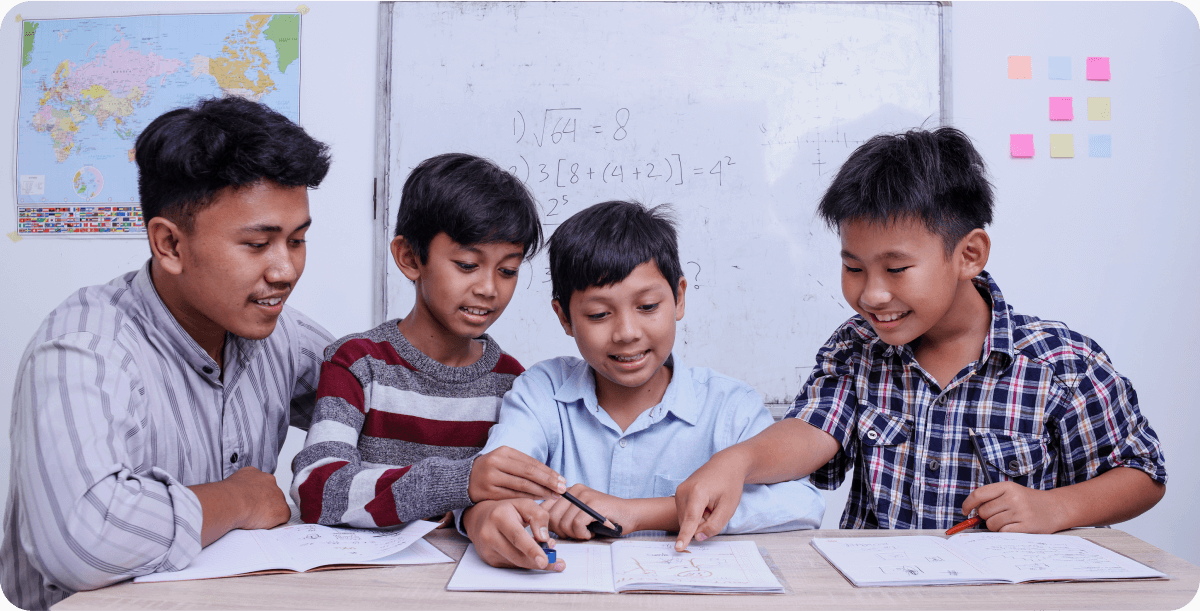
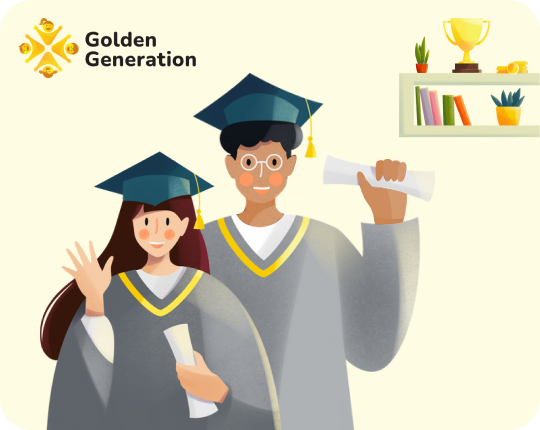
Economic status heavily influences educational attainment, with over half of individuals in the lowest economic quintile stopping at primary school or below. Moreover, urban-rural divides compound these issues, with urban areas boasting higher education completion rates due to better access to educational facilities.
The Golden Generation initiative addresses these challenges by promoting inclusive and equitable education across Indonesia. It supports programs aimed at bridging education gaps, ensuring all Indonesians, regardless of economic background or location, have opportunities for a brighter future through education.
By implementing the United Nations Sustainable Development Goals (UNSDGs) in our program, we ensure that our efforts align with a globally recognized framework for addressing critical social, economic, and educational challenges. Additionally, our partnership with various organizations enhances the transparency and accountability of our initiatives.


Education is a powerful tool for social mobility. Ensuring equal access to quality education, regardless of background, breaks the economic barriers.
This fosters a more equitable society where individuals can climb the social ladder based on merit and hard work. With the knowledge and skills acquired through education, Indonesians are empowered to pursue previously out-of-reach opportunities.

Golden Generation tackles the issue of poverty head-on by addressing the economic barriers that prevent low-income families from accessing education.
The initiative promotes higher educational attainment, equipping individuals with the tools they need to break the cycle of poverty.
Education empowers them to secure better jobs, leading to improved livelihoods for themselves and their families. This creates a ripple effect, fostering economic growth at both the individual and societal levels.

The program recognizes that a well-educated population is the backbone of a strong economy. It aims to cultivate a "Golden Generation" – a group characterized by high levels of education, innovation, and productivity.
Investing in education creates a skilled workforce that fuels Indonesia's economic competitiveness on the global stage. This strategic investment in human capital is critical for achieving the country's long-term goal of becoming a developed nation.




Find answers to your questions about Golden Generation here
Golden Generation program directly supports various educational initiatives designed to reach underprivileged communities. By providing scholarships, educational materials, and other necessary resources, the program helps to bridge the educational gap faced by those most in need, especially children and young adults who are economically disadvantaged.
Absolutely. All funds collected through the Golden Generation program are transparently allocated to carefully selected educational projects. Treasury works closely with various trusted partners to ensure that every contribution directly impacts the beneficiaries.
Golden Generation program targets underprivileged children, including those from economically disadvantaged backgrounds, rural or underserved regions, and those lacking adequate resources for quality education.
The United Nations Sustainable Development Goals (UNSDG) are 17 global goals established by the United Nations to address the world's most pressing challenges, including poverty, inequality, climate change, environmental degradation, peace, and justice. These goals are a universal call to action to ensure a better and more sustainable future for all by 2030.
We implement UNSDG in our Golden Generation program to align our efforts with global sustainability initiatives. By following these goals, we can address critical challenges such as educational inequities and economic disparities. This alignment helps us promote quality education (SDG 4), reduce inequalities (SDG 10), no poverty (SDG 1), and decent work and economic growth (SDG 8). This ensures that our impact is both meaningful and globally relevant, helping us create a brighter future through education and support social and economic development.